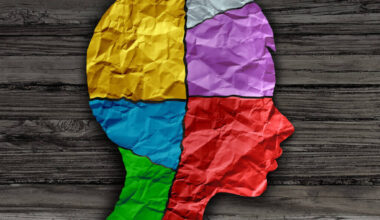Some people develop feelings for others very quickly. However, these feelings can lead them to become attached even before they really get to know the other person. You probably wear your heart on your sleeves if you get attached so easily to people you’ve just met. It is admirable to be vulnerable in relationships, but it is also important to take things slowly. Otherwise, you could feel disappointed or hurt if the relationship doesn’t work out. Are you comfortable with your openness, or do you want to try to be more cautious in the future? If you want to use the brakes, then stay with me.
Several potential downsides come with becoming attached to someone you hardly even know. Disappointment and heartbreaks are possible aftermaths of such hasty connections. People become attached to others so easily for different reasons. In this article, we will go through some of them as well as a couple of healthy tips that will help you slow things down.
Key Takeaways
- Attachments can lead to a level of emotional dependence on the person. You might feel happier when they’re around and miss them when they’re not. Their presence can influence your mood and well-being.
- Hasty attachments can lead you to form unrealistic expectations, which ultimately brings about disappointment when reality catches up.
- Neglecting other relationships, worrying about losing them, and having difficulty setting boundaries are clear indicators that you get attached easily.
- Individuals tend to become attached to others more easily due to personal experiences, traits, and psychological factors.
- To prevent developing sudden attachments with people you just met, take your time getting to know the person on multiple levels, assess shared values, observe consistency over time, and delay intimacy. Genuinely pay attention to what the other person is saying to gain insights into their thoughts, emotions, and perspectives, and always trust your guts.
What Does It Mean to Get Attached to Someone?

Becoming attached to someone means experiencing emotional closeness and a strong connection with them. This can happen quickly, or it can develop over time. When you become attached to someone, you could feel at ease sharing thoughts and emotions, and they might even become part of your support system.
Attachment goes beyond just liking someone. It involves deeper emotions like affection, care, and love. You might find yourself thinking about the person often, and their well-being becomes important to you. It often involves letting your guard down and being vulnerable to someone. You might share personal thoughts, feelings, and experiences that you wouldn’t share with others.
Attachments can lead to a level of emotional dependence on the person. You might feel happier when they’re around and miss them when they’re not. Their presence can influence your mood and well-being. Also, trust is a significant component of attachment. You believe that the person cares about you and has your best interests at heart. This trust allows you to open up and share your thoughts and feelings.
When you become attached to someone, you might naturally want to spend time with them. Their company is comforting and enjoyable. Your attachments often become a source of support. During tough times, you might turn to the person for comfort, advice, or motivation. This is why there can be a fear of losing the person as the attachment deepens. This fear might lead to behaviors, either positive or negative, aimed at maintaining the relationship.
Signs You Get Attached So Easily

Attachment is a psychological concept that denotes the emotional connection that individuals establish with others. It constitutes a natural and beneficial aspect of existence, offering substantial solace and assistance. However, there are instances when individuals can become excessively attached hastily, potentially resulting in future complications. Hence, how can you identify indications of someone developing rapid attachment? Here are certain indicators to be mindful of:
Idealizing From the Get-Go
In the context of a relationship, idealization is all about looking at someone through rose-colored glasses and refusing to acknowledge red flags. You focus on their admirable qualities and strengths while downplaying or even ignoring their flaws or negative aspects. This can lead to an unrealistic and idealized perception of the person.
When you idealize someone, you emphasize their positive qualities, talents, and virtues. You might see them as almost perfect and may believe they can do no wrong. You might overlook or downplay any flaws, mistakes, or shortcomings that the person has. This will make you put them on a pedestal. If you find you think this about someone you have a deep bond with, it could be a sign you became attached to them hastily.
Seeking Constant Validation
Once in a while, we all need words of affirmation from our partners to remember just why they are with us. However, if you always need your partner’s reassurance to feel secure in your relationship, it could be another sign that you get attached hastily. Before you get on the bus of commitment with someone, you should have a significant sense of security with them first. It is when that security is missing that one might feel they need constant validation in a relationship. If you didn’t rush over the attachment, you might have felt a little more secure.
Neglecting Other Relationships
When you become attached to someone hastily, the excitement that comes along with it can take your mind off other relationships. This is because you give primary focus to the attachment you recently developed. So, you neglect other relationships and your world suddenly resolves around that one attachment only. You might also find yourself neglecting hobbies, passions, or personal goals as you become more preoccupied with your attachment.
Worry About Losing Them
If you’ve only recently met someone, but you have this fear of watching them walk out of your life, you might just be someone who attaches to others easily. This fear can lead to insecurity and clinginess. This behavior involves being overly attentive, needing constant contact, and seeking reassurance excessively. While these actions stem from a genuine desire to maintain the connection, they can sometimes have the opposite effect, making the other person feel overwhelmed or suffocated.
Difficulty Setting Boundaries
If you meet someone new, you should have personal boundaries in place. However, when you get easily attached to them, you might find it challenging to establish boundaries within the relationship. You want to spend every free opportunity you get with them and you don’t apply caution when sharing your thoughts and feelings with them. This can be because you want to be as close to them as possible. It can also be because you worry that setting boundaries will lead to the other person pulling away or rejecting you.
Reasons You Get Attached So Easily

There are various reasons why some individuals tend to become attached to others more easily. This can be due to personal experiences, traits, and psychological factors. Here are a few potential reasons:
Loneliness
Loneliness is the emotional state of feeling isolated or disconnected from others, even if there are people around. It can result from childhood abandonment issues or even certain mental conditions like depression or social anxiety in adult life. If you feel lonely or lack a strong social support system, you might be more inclined to latch onto attachments as soon as you find them.
Emotional Sensitivity
This refers to the heightened awareness and responsiveness to emotions, both one’s own and those of others. Emotionally sensitive individuals tend to feel emotions more intensely and might pick up on subtle emotional cues that others might miss. If you are emotionally sensitive, you are likely to become attached more easily than others. This is because you experience and express your emotions more intensely, and this can make you bond with people easily.
Low Self-esteem
Individuals with low self-esteem might struggle to value themselves and their own qualities, which can influence their behavior in relationships. Those with low self-esteem might seek external validation to feel better about themselves. Forming attachments quickly might provide an immediate sense of being valued and wanted.
Hormonal and Neurochemical Factors
Hormones and brain chemistry can also play a role in forming attachments. Oxytocin, often called the “bonding hormone,” is linked to social connections. It’s released during social interactions, physical touch, and emotional bonding. Oxytocin enhances feelings of trust, connection, and attachment, potentially leading to quicker emotional bonds. Other brain chemicals that contribute to social connections are dopamine and serotonin. So, when you have higher levels of these hormones, you are more likely to form attachments more easily.
How to Stop Getting Attached So Easily

Hasty attachments can lead you to form unrealistic expectations, which ultimately brings about disappointment when reality catches up. And that is not all there is to the downsides of becoming attached to others so easily. So, you must manage and prevent developing sudden attachments with people you just met. Don’t know where to start? Here’s where:
Take Your Time
Allow yourself the space and time to gradually invest emotionally in a relationship. Get to know the person on multiple levels, assess shared values, and observe consistency over time. This approach helps prevent rushed attachments, reduces the risk of disappointment, and leads to healthier, more sustainable connections based on mutual understanding and compatibility.
Delay Intimacy
Emotional and physical intimacy should come after you’ve developed a foundation of trust and mutual understanding. This approach allows both individuals to feel more comfortable, secure, and connected before progressing to deeper levels of intimacy. It can lead to more satisfying and meaningful intimate experiences, as they are based on a foundation of mutual understanding and emotional closeness.
Listen and Learn
You should emphasize the importance of active listening and engagement in conversations. By genuinely paying attention to what the other person is saying, you gain insights into their thoughts, emotions, and perspectives. This approach helps you understand their values, interests, and experiences on a deeper level.
Trust Your Guts
If something feels rushed or off in a relationship, your instincts can signal a need to slow down. This prevents impulsive attachments and allows you to make more thoughtful decisions based on your gut feelings. Trusting your instincts empowers you to maintain a balanced approach to forming connections, reducing the risk of getting attached too quickly.
Final Thoughts
Remember, the goal isn’t to avoid emotional connections altogether. Since hasty attachments can have such impacting downsides, it is necessary to approach relationships with mindfulness and intentionality to ensure that your emotional investments are balanced, healthy, and well-aligned with your own well-being and goals.
Related Articles
- 12 Signs You Are Healing from Trauma
- 15 Practical Ways on How To Have Self-control Sexually
- Life Coach vs Therapist: What Are the Differences?
- How a Bipolar Person Loves: 10 Ways and All You Need






